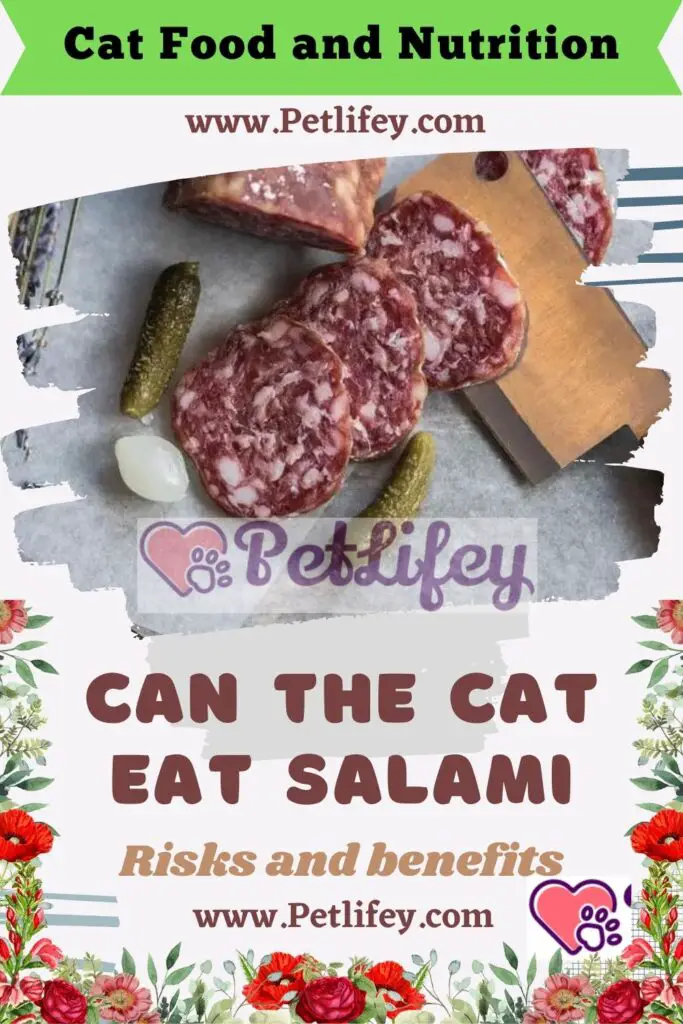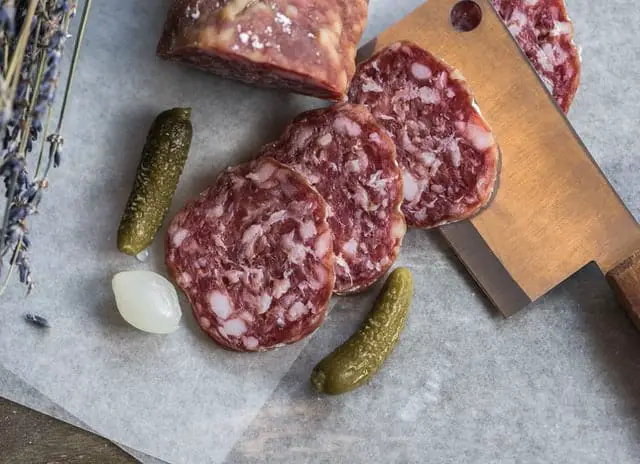
It may seem normal, since cats are carnivores, to give some cured meats as a reward. But can the cat eat salami or can this food be harmful to him / her?
Pets have always adapted to our eating habits, and often ask – even in a rather overbearing way – to taste everything we eat. But our foods are not always good for our pets, in fact sometimes they are too heavy for them to digest, and in some cases they can lead to major health problems. We must therefore always inquire before giving a new food to our furry friends, for example: can the cat eat salami? Sure, being a carnivore it might seem like a good food suitable for him / her, but are we sure?
Proper nutrition of cats
Cats are obligate carnivores, meaning they must eat meat to survive. But can they actually have some salami, or better yet, should they eat it for their health? According to veterinary experts, the answer is not a simple yes or no. Salami is a suitable food to be a small treat, it should be given in small quantities.
Due to the very high sodium content of this food, salami can cause cats to increase their water intake. Also, it can cause agitation. Of course, our cat will probably have no problems and will be fine by eating a small amount of salami, ham, capicollo or other cured meats. But as the vet rightly suggests, this shouldn’t become a habit, because food is fuel for the body, and salami won’t do much to help our kitty improve their health.
The risks of salami

The cat can eat salami only in small quantities. In fact, the food must be palatable, digestible and nutritious to have value, or the cat will have an inadequate diet, and you will notice in many aspects what our bad choices were. Some cured meats, for example, may contain spices such as garlic and its like. These foods, along with onion, chives, leeks, are toxic to cats and dogs.
In fact, cured meats, but also sausages and sausages, and all similar foods, are not recommended by veterinarians because they are rich in sodium. So they are not good even in small quantities. It would be better to give our cat some meat treats – always in small quantities – of known origin, to avoid parasites. Trichinellosis, for example, is a parasitic disease caused by the consumption of raw, or undercooked, meat from animals infected with the larvae of a species of worm called Trichinella. This can be spread from animals, including domestic cats, to humans.
It is therefore always necessary to consult our vet to make sure that our little furry friend receives the right amount of nutrients, of the correct type. In addition, we check the ingredients contained in the food we give them: let’s make sure that the recipe of the food we use has been tested for quality and nutrition. No matter how cute (and convincing) our cat is, let’s make sure we don’t go overboard by giving them plenty of human treats .






